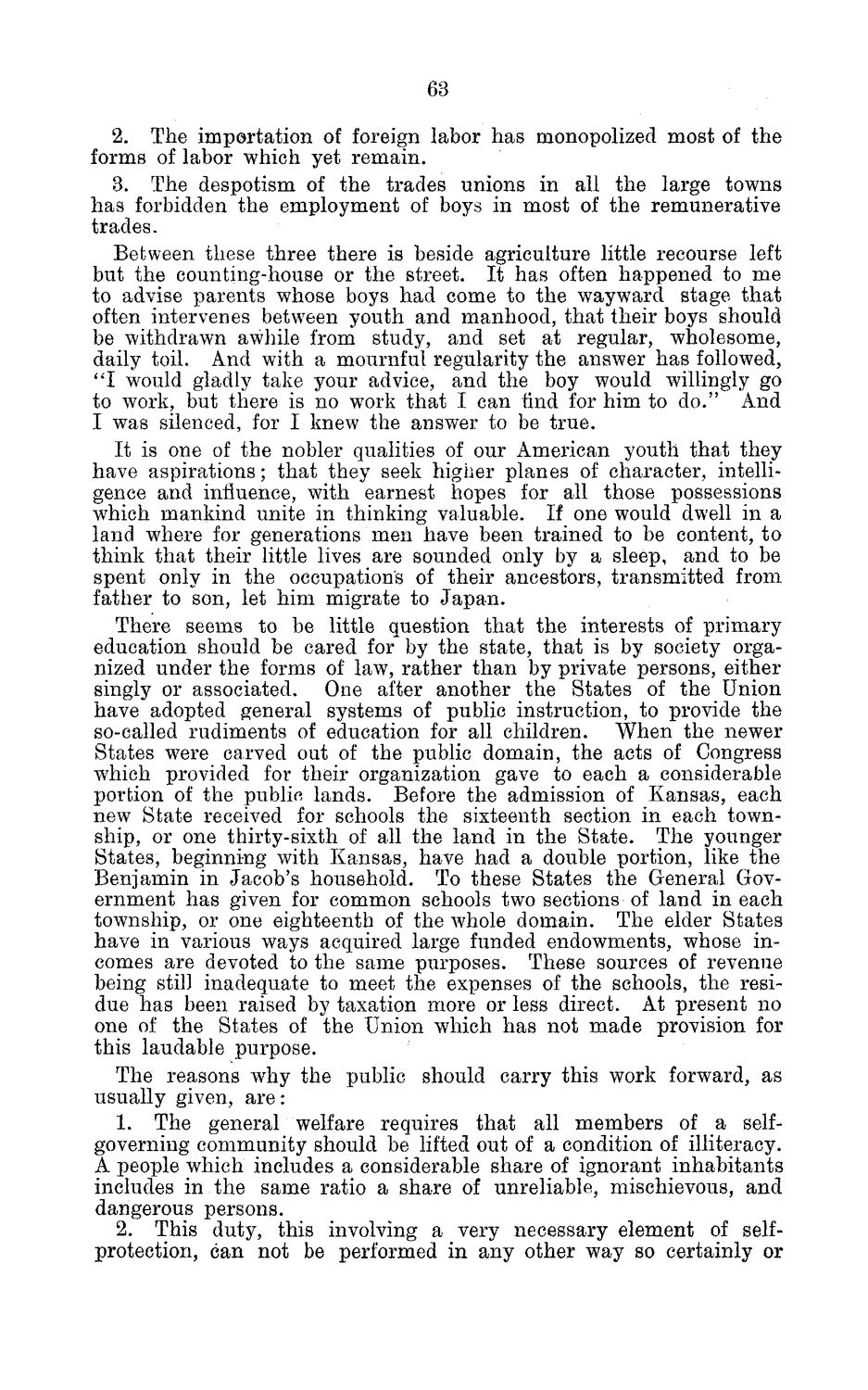| |
| |
Caption: Board of Trustees Minutes - 1884
This is a reduced-resolution page image for fast online browsing.

EXTRACTED TEXT FROM PAGE:
63 2. The importation of foreign labor has monopolized most of the forms of labor which yet remain. 3. The despotism of the trades unions in all the large towns has forbidden the employment of boys in most of the remunerative trades. Between these three there is beside agriculture little recourse left but the counting-house or the street. It has often happened to me to advise parents whose boys had come to the wayward stage that often intervenes between youth and manhood, that their boys should be withdrawn awhile from study, and set at regular, wholesome, daily toil. And with a mournful regularity the answer has followed, " I would gladly take your advice, and the boy would willingly go to work, but there is no work that I can find for him to do." And I was silenced, for I knew the answer to be true. It is one of the nobler qualities of our American youth that they have aspirations; that they seek higher planes of character, intelligence and influence, with earnest hopes for all those possessions which mankind unite in thinking valuable. If one would dwell in a land where for generations men have been trained to be content, to think that their little lives are sounded only by a sleep, and to be spent only in the occupations of their ancestors, transmitted from father to son, let him migrate to Japan. There seems to be little question that the interests of primary education should be cared for by the state, that is by society organized under the forms of law, rather than by private persons, either singly or associated. One after another the States of the Union have adopted general systems of public instruction, to provide the so-called rudiments of education for all children. When the newer States were carved out of the public domain, the acts of Congress which provided for their organization gave to each a considerable portion of the public lands. Before the admission of Kansas, each new State received for schools the sixteenth section in each township, or one thirty-sixth of all the land in the State. The younger States, beginning with Kansas, have had a double portion, like the Benjamin in Jacob's household. To these States the General Government has given for common schools two sections of land in each township, or one eighteenth of the whole domain. The elder States have in various ways acquired large funded endowments, whose incomes are devoted to the same purposes. These sources of revenue being still inadequate to meet the expenses of the schools, the residue has been raised by taxation more or less direct. At present no one of the States of the Union which has not made provision for this laudable purpose. The reasons why the public should carry this work forward, as usually given, a r e : 1. The general welfare requires that all members of a selfgoverning community should be lifted out of a condition of illiteracy. A people which includes a considerable share of ignorant inhabitants includes in the same ratio a share of unreliable, mischievous, and dangerous persons. 2. This duty, this involving a very necessary element of selfprotection, can not be performed in any other way so certainly or
| |